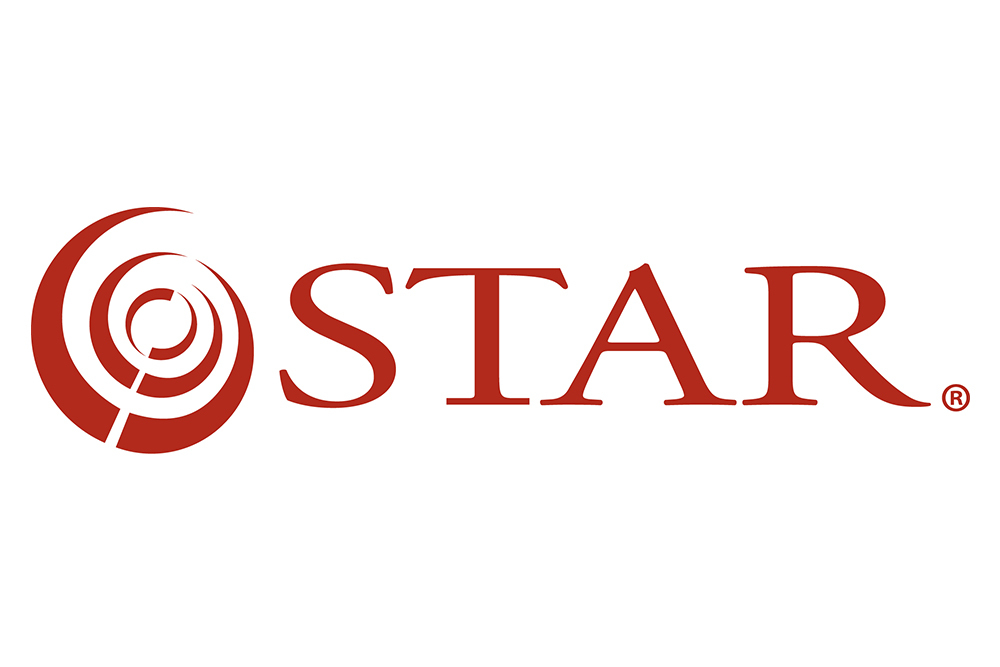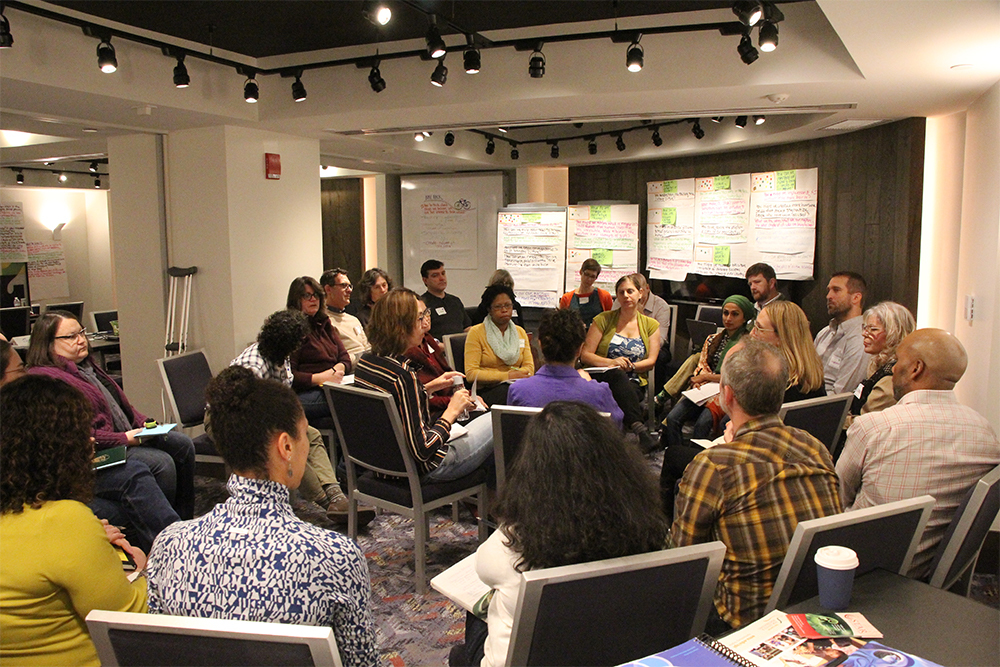“It takes courage to try to address harms at the systemic level, such as the land theft that is at the foundation of the service; at the institutional level, like culture and climate issues faced by employees throughout the service; and the individual level, things like interpersonal bullying and harassment. None of our organizations is a shining example of doing this well, so it’s a gift to be part of the process of struggle toward change.”
STAR Lead Trainer Katie Mansfield
The National Park Service is focusing on improvement of its workplace culture and climate – and calling in the help of restorative justice and conflict transformation professionals from Eastern Mennonite University’s Strategies for Trauma Awareness and Resilience (STAR) program.
Most recently, STAR trainers conducted a training and facilitated discussion over four days in Philadelphia for 20 federal workers, including five park service superintendents. Its goal? To engage with trauma and resilience experts to help shift workplace culture and build employee satisfaction throughout park service offices in the Northeast.

The event was the second time STAR has worked with the park service and more trainings are being planned, according to STAR Program Director Hannah Kelley.
The inclusion of STAR programming has provided a way into addressing systemic issues within the park service’s unique context, said Rebecca Stanfield McCown, director of the host agency, the National Park Service Stewardship Institute. “I’m still amazed at the impact of the December workshop, which not only connected each of us to the personal and human side of trauma awareness and restorative practices, but helped us begin to develop a common language around these principles.”
NPS explores the potential of RJ
The Stewardship Institute is dedicated to helping NPS leaders “move the organization in new directions” through collaboration and dialogue. It began exploring the potential of restorative justice for “employee wellness in the face of harassment and hostility” about two years ago, McCown said.
At about the same time, Grand Canyon National Park hosted a STAR training. Park administrators were connected with STAR by Sigal Shoham, a 2013 alumna of the Center for Justice and Peacebuilding and an organizational omsbudsman with the U.S. Department of the Interior’s Office of Collaborative Action and Dispute Resolution (CADR).
Administrators at The Stewardship Institute were especially interested in the beneficial outcomes of the training in Arizona. “When we were looking to understand what role restorative practices could have in addressing harassment and hostility, we reached out to STAR because of the good things we had heard from the staff at Grand Canyon,” McCown said.
She added: “It had been challenging to communicate the potential alignment and benefits restorative practices could bring to the NPS because most of us lacked the language and strong understanding of how it might be applied to our workplaces.”
With STAR programming shaped to that educational goal and outside experts brought in for the facilitated discussion, the Philadelphia training helped the Stewardship Institute shine light on the way forward.
Positive outcomes
The training was facilitated by STAR Lead Trainer Katie Mansfield and Jonathan Swartz, a restorative justice practitioner and Center for Justice and Peacebuilding alumnus. The participants, including Shoham and other CADR employees, spent 2.5 days learning about the personal and organizational impacts of trauma, concepts and applications of restorative justice, self care, and secondary traumatic stress.
The remainder of the third and fourth days focused on a facilitated dialogue, during which participants could ask questions of experts in restorative justice, trauma awareness and resilience, truth and reconciliation, and organizational anthropology, including the STAR trainers themselves. EMU professors Johonna Turner and Carolyn Stauffer, who bring expertise in trauma awareness, resilience and restorative justice, contributed to this discussion, which also included cultural anthropologists and other specialists.
One outcome of the final session was strategies and action items to create awareness, implement practices, and build a new culture.
“I could feel the combination of struggle and inspiration and care among the participants,” said Mansfield “It takes courage to try to address harms at the systemic level, such as the land theft that is at the foundation of the service; as well as at the institutional level, like culture and climate issues faced by employees throughout the service; and the individual level, things like interpersonal bullying and harassment. None of our organizations is a shining example of doing this well, so it’s a gift to be part of the process of struggle toward change.”
The December workshop, McCown said, equipped park service staff to begin “to implement trauma-aware and restorative practices in our individual parks or program culture,” such as developing workshops for more staff. The participants are also working to “identify ways that park leadership can foster workplaces that include restorative practices and trauma-aware leadership.”

Maybe you should help the Forest Service. But then maybe they aren’t ready to ask for help…
Hi, Annora. Thanks for the suggestion! We would be happy to talk with the Forest Service about working on trauma, resilience, and restorative justice. If you have a contact with the Forest Service, they can email me at star@emu.edu. We have worked with a wide variety of organizations, and we always love meeting new folks who are working toward healing and transformation in their work.